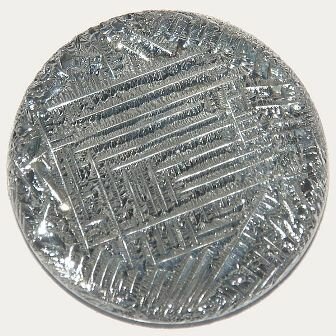One of these following facts about tellurium might give you much information about this chemical element. Tellurium is a chemical element with symbol Te and atomic number 52. A brittle, mildly toxic, rare, silver-white metalloid which looks similar to tin, tellurium is chemically related to selenium and sulfur. It is occasionally found in native form, as elemental crystals. Tellurium is far more common in the universe as a whole than it is on Earth. Its extreme rarity in the Earth’s crust, comparable to that of platinum, is partly due to its high atomic number, but also due to its formation of a volatile hydride which caused the element to be lost to space as a gas during the hot nebular formation of the planet. To get to know more information about this element, here are some other facts about tellurium you might be interested in.
Facts about tellurium 1: Discovery
Tellurium was discovered in Romania, in 1782 by Franz-Joseph Muller von Reichenstein in a mineral containing tellurium and gold. Martin Heinrich Klaproth named the new element in 1798 after the Latin word for “earth”, tellus. Gold telluride minerals are the most notable natural gold compounds.
Facts about tellurium 2: Physical Appearance
When crystalline, tellurium is silvery-white and when it is in pure state it has a metallic luster. It is a brittle and easily pulverized metalloid. Amorphous tellurium is found by precipitating it from a solution of tellurous or telluric acid.
Facts about tellurium 3: Chemical Properties
Tellurium adopts a polymeric structure, consisting of zig-zag chains of Te atoms. This gray material resists oxidation by air and is nonvolatile.
Facts about tellurium 4: Occurrence
The extreme rarity of tellurium in the Earth’s crust is not a reflection of its cosmic abundance, which is in fact greater than that of rubidium, even though rubidium is ten thousand times more abundant in the Earth’s crust.
Facts about tellurium 5: Finding
Although tellurium is found with gold more often than in uncombined form, it is found even more often combined with elements other than gold, as tellurides more common metals
Facts about tellurium 6: Gold Rush
In the gold rush of 1893, diggers in Kalgoorlie discarded a pyritic material which got in their way as they searched for pure gold. The Kalgoorlie waste was thus used to fill in potholes or as part of sidewalks. Three years passed before it was realized that this waste was calaverite, a telluride of gold that had not been recognized.
Facts about tellurium 7: Production
The principal source of tellurium is from anode sludgens produced during the electrolytic refining of blister copper. It is a component of dusts from blast furnace refining of lead. Treatment of 500 tons of copper ore typically yields one pound (0.45 kg) of tellurium. Tellurium is produced mainly in the United States, Peru, Japan and Canada.
Facts about tellurium 8: Metallurgy
The largest consumer of tellurium is metallurgy, where it is used in iron, copper and lead alloys. When added to stainless steel and copper it makes these metals more machinable.
Facts about tellurium 9: Biological Role
Tellurium has no known biological function, although fungi can incorporate it in place of sulfur and selenium into amino acids such as telluro-cysteine and telluro-methionine. Organisms have shown a highly variable tolerance to tellurium compounds.
Facts about tellurium 10: Precautions
Tellurium and tellurium compounds are considered to be mildly toxic and need to be handled with care, although acute poisoning is rare.Tellurium is not reported to be carcinogenic.
Hope you would find those tellurium facts really interesting and useful for your additional reading.









